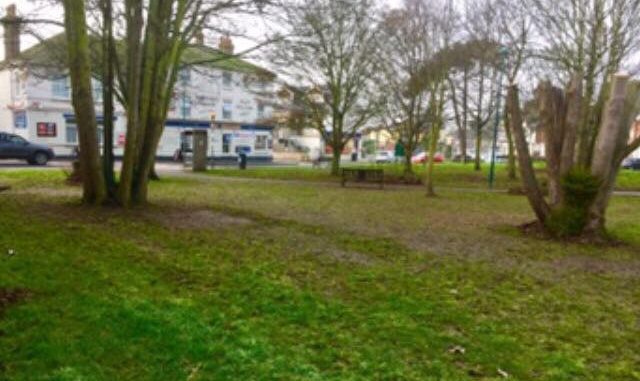
Birchington Parish Council has taken on the management of Dog Acre.
The green, at the bottom of Station Road, had become neglected and unkept.
But last week BPC obtained a licence from Thanet council to take control of the site with a view to having the ownership transferred to the Parish.
Parish councillor Phil Fellows said: “This has been an ambition of BPC for a while and in conjunction with The Birchington in Bloom group, this has now been made possible. We have some plans to undertake landscaping in the near future.”
The parish council also wants to take control of the Birchington Memorial Ground as an asset transfer from TDC.
Cllr Fellows said: “Birchington Parish Council is always looking for ways we can improve our environment. By actively seeking to transfer assets from TDC to the Parish such as the seafront Shelters, Dog Acre, Rossetti Gardens and hopefully the Memorial Recreation Ground, then we can preserve these assets for our residents for perpetuity.
“We hope the community will support our efforts as we have seen with the shelters. Our village has many fantastic volunteers who we will always seek to recognise with our annual Civic Awards.
“Birchington Parish Council would also like to thank Cllr Bob Bayford for his assistance with the asset transfer process.”
Did you know…
Dog Acre was originally a strip of land now occupied by the western half of Alpha Road, with a small frontage butting onto Station Road. It belonged to the Church of All Saints and had been given to the church by a local donor, probably in the 16th century.
During the Medieval and Tudor periods almost every householder owned a dog and there would always be a few stray ones around the villages and towns. If there was any trouble with the dogs fighting each other or attacking people, the local ‘Dog Whipper’ would be called to grab the offending animal around its neck with a large pair of wooden tongs, not unlike those that were used to lift washing from the boiler.
Some communities still own their old wooden tongs.
The Dog Whipper was paid, sometimes in cash, sometimes in kind and, in Birchington’s case, by the use of about an acre of land (or by a combination of these). He could cultivate this land, or use it for grazing an animal or even let it out to earn himself hard cash. The Dog Whipper first appears in the Church accounts in 1622.
Historical information with thanks to Jennie Burgess, Birchington Heritage Trust

